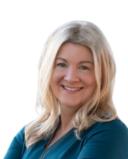Spirituality
Unlocking the Love Code Again: The Science of Spirituality
A closer look reveals a surprising alignment of science and spirituality.
Posted February 20, 2024 Reviewed by Michelle Quirk
Key points
- The Love Code describes our biology as being hardwired for love and explains that our health depends on it.
- In the absence of fear, we default to emotions that promote altruism, compassion, gratitude, and joy.
- When in a fear state, we form protections, creating mistrust, competition, and divisiveness.

On Valentine's Day of 2022, I published a post called Unlocking the Love Code about why our bodies were meant for love. By far, it has been my most popular post to date. The Love Code describes our biology as being hardwired for love and explains that our health depends on it.
On the surface, we don’t think of science and spirituality as compatible, but, as we look more deeply, they begin to align.
In 2021, I released my memoir, Food, Body and Love: But the Greatest of These Is Love. In the book, I quote Einstein who said, “The more I learn about science, the more I believe in God.” I go on to say, “In my search for the truth in the midst of extreme complexity, science and faith converged into a place of simplicity. The place I call Love.” I describe a spiritual path leading me from depression, a life of cravings and compulsive eating, to an enlightened way of living. I describe the biological explanation for such a transformation, in part, through the lens of the polyvagal theory. Yet the deepest form of love—one that transcends fear and reveals our unique purpose and authenticity—can only be explained by the existence of God.
Lisa Miller, Ph.D., author of The Awakened Brain: The New Science of Spirituality and Our Quest for an Inspired Life, has broken the barrier between science and spirituality. Her brain research parallels my experience and validates what I see in my clinical practice.
In her work, contrasting brain scans show what she coined as the achieving brain versus an awakened brain. The achieving brain keeps us in the cycle of motivation and reward. This region of the frontal lobe can get stuck in overdrive and can trap us in obsessional worry loops and addiction. Once overwhelmed, our reality gets very small, and we fall into a narrative of fear, regret, anger, despair, and wanting to escape. The awakened brain lets go of the tight grip of outcome, allows boundaries to soften, and allows individualism and competition to diminish. A sense of love defaults to a collective oneness. These two sides of the same coin are literally in our physiology.
Porges’s polyvagal theory has a similar biological framework when contrasting states of the autonomic nervous system.
In the absence of fear, we default to emotions that promote altruism, compassion, gratitude, and joy. In this state, we become more resilient. The love hormone (oxytocin) increases, and the stress hormone (cortisol) decreases. This is described as our most authentic state. When in a fear state, we form protections, creating mistrust, competition, and divisiveness. We develop cravings for false attachments or addictions, and chronic fear leads us to a shutdown response, which resembles depression.
Miller explains that, in quantum physics, the world isn’t made of individual particles but of an inseparable whole. She posits, what if, for instance, our brains weren’t merely creators of thoughts but were, in fact, docking stations for a larger consciousness or spiritual awareness? What if we were born with this hardwiring to receive this spirit energy? The awakened brain sees relationships as not merely transactional but rather as an exchange of the spirit of love. Her research shows that the awakened brain becomes structurally healthier and is exponentially less depressed, anxious, and protective of addiction. It has more positive psychological traits, such as grit, resilience, tenacity, and creativity.
As Miller says, “It connects us to the most expansive reality that we are loved, guided and never alone.”
When it comes to our health, resourcing love, whether in our brain or our autonomic nervous system, seems to be the most simplistic answer.
References
Miller, Lisa (2021) The Awakened Brain, the New Science of Spirituality and Our Quest for an Inspired Life. Random House, NY
Porges, Stephen and Porges, Seth (2023) Our Polyvagal World: How Safety and Trauma Change Us. Norton and Co.


